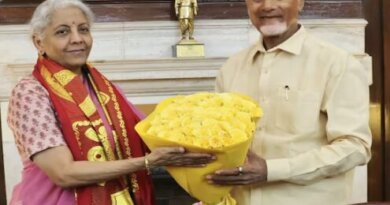Speaker Faces Heat Over 10 MLA Defections

The Telangana Legislative Assembly is bracing for a politically charged week as Speaker Gaddam Prasad Kumar begins hearings on disqualification petitions filed against ten MLAs who defected from the Bharat Rashtra Samithi (BRS) to the ruling Congress party. The proceedings, scheduled for September 29 and October 1, mark a rare invocation of the Anti-Defection Law under the Tenth Schedule of the Constitution.
The Supreme Court had earlier issued a stern directive, compelling the Speaker to conclude the hearings within three months. This judicial intervention followed months of inaction, which critics say undermined democratic accountability and emboldened political opportunism.
The MLAs in question—T. Prakash Goud, Kale Yadaiah, Gudem Mahipal Reddy, and Bandla Krishnamohan Reddy among others—are expected to face cross-examination during the sessions. The Assembly premises have been placed under tight security, with media access restricted and mobile phones banned inside the tribunal hall.
Legal experts view this as a litmus test for the Anti-Defection Law, which has often been diluted by procedural delays. The Speaker, acting as a quasi-judicial authority, is now under scrutiny to uphold constitutional integrity and deliver a verdict that could reshape Telangana’s legislative landscape.
The BRS, which filed the petitions, argues that the MLAs “voluntarily gave up party membership,” a clear violation of the law. If disqualified, the legislators could trigger by-elections, potentially altering the balance of power in the Assembly.
Political observers note that the outcome could set a precedent for similar cases across India, especially with general elections on the horizon. The Supreme Court’s emphasis on timely adjudication signals a shift toward stricter enforcement of anti-defection norms.
Meanwhile, public sentiment remains divided. Some view the defections as betrayal, while others see them as strategic realignments. The Speaker’s decision, expected before October 31, will likely influence voter trust and party dynamics in the months ahead.
This development comes amid a broader churn in Indian politics, where party loyalty is increasingly fluid and legal safeguards are being tested. The Telangana case could become a benchmark for how institutions respond to political volatility.
As the hearings unfold, all eyes are on the Speaker—not just for a verdict, but for a reaffirmation of democratic principles.



